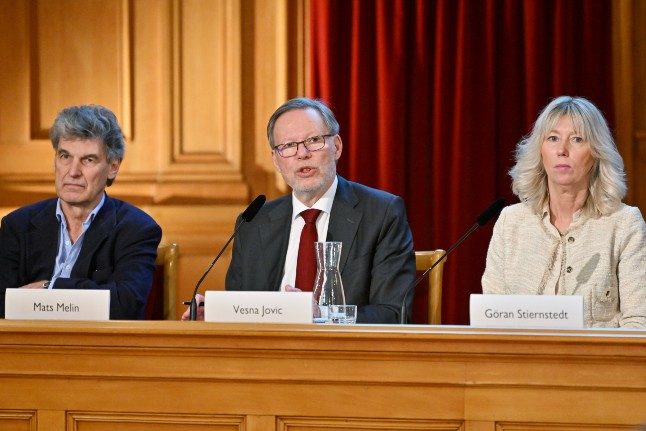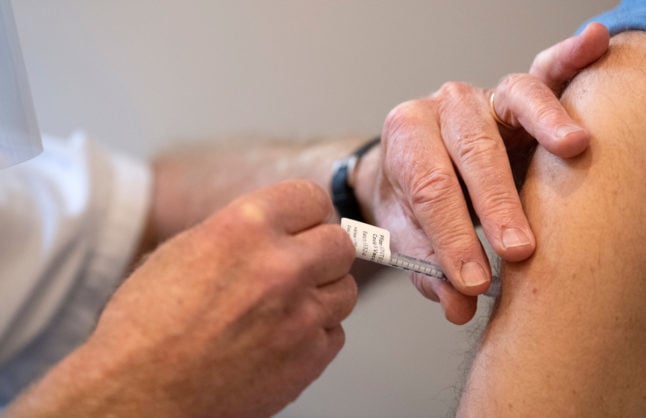“It was fundamentally right to rely on issuing advice and recommendations,” Mats Melin, the commission’s chair said at a press conference after issuing the report. “The state should not limit the freedom of the individual more than is necessary to limit a dangerous sickness.”
In addition, he noted, countries which had imposed greater restrictions had not necessarily had better outcomes.
“We are not convinced that long-lasting and repeated lockdowns are necessary element in the response to a new, serious epidemic outbreak,” he said.
Sweden made headlines early on in the pandemic by not introducing a lockdown, instead issuing recommendations on home-working, social distancing and good hand hygiene.
But tougher measures should have been introduced in February-March 2020, Melin said, with the measures that were imposed “too few” and coming “too late”.
READ ALSO:
While the commission hailed Sweden’s decision to keep most schools open during the first wave, it said that by March 2020 there “should have been temporary closures” of indoor places where people gather, such as shopping centres, restaurants, sport events and so on.”
In particular, it criticised the fact that it took until the end of March 2020 for the limit on public gatherings to be lowered to 50 people.
It also said that those returning from ski trips in Italy at the end of February and the start of March should have been asked to quarantine, while incoming travel should have temporarily been stopped for all but the most necessary journeys, as happened in Denmark and Norway.
In an interview with The Local, Sweden’s health minister Lena Hallengren welcomed the commission’s conclusion that the fundamental strategy had been correct.
“That the commission concludes that the overall strategy based on non-invasive recommendations and a non-lockdown policy, that they think that was the right choice. I think that’s good,” she said.
At later stages of the pandemic, Sweden eventually introduced stricter measures, including bans on elderly home visits, earlier closings at bars and restaurants, and vaccine passes for indoor events.
The commission also said the government should have assumed leadership of all aspects of Covid crisis management, despite the Public Health Agency’s large degree of autonomy and a healthcare system managed by self-governing regional councils.
“The government had too one-sided a dependence on assessments made by the Public Health Agency”, it said.
It was not until the end of October that the government began to try to take a leading role, with documentation obtained by the commission showing the then Prime Minister Stefan Löfven trying to take more precedence over the Public Health Agency.
The government, it concluded, should also have sought to get alternative views from other infectious disease and public health experts, rather than relying solely on the Public Health Agency’s expertise.
Hallengren told The Local that she rejected this aspect of the report.
“The government has been the one leading and deciding, and we are responsible,” she said.
She also rejected the claim that the government had been over-reliant on the agency’s experts.
“They can have their opinion about that, but the fact is, that the Public Health Agency is not an expert, it’s hundreds of experts, who are working with infection control and working with public health issues all the time,” she said. “It would be very strange if I, as minister for health, or the government, relied on specific or unique experts instead of this very big expert authority when it comes to epidemiological knowledge.”
An earlier partial report by the commission had also criticised the country’s slowness is setting up adequate testing measures.
With more than 17,000 fatalities so far, Sweden’s death toll is slightly better than the European average but is far higher per capita than those of neighbouring Norway, Finland and Denmark.



 Please whitelist us to continue reading.
Please whitelist us to continue reading.
Member comments